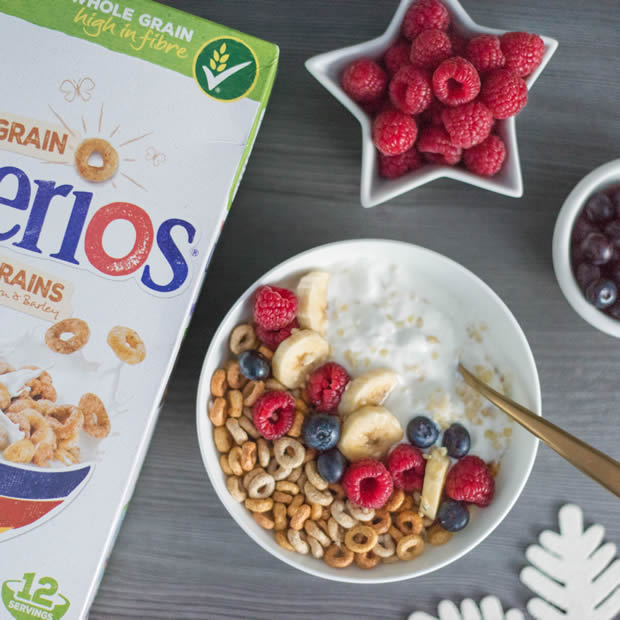Majority of UK consumers (86%) have little or no knowledge of whole grain and its nutritional value
- Over two in five (44%) consumers say a lack of understanding about whole grain’s health benefits is holding back consumption
- Whole grain, which is high in fibre, could benefit over almost a third (29%) who say they don’t eat enough fibre
- Data comes as Nestlé Cereals launches campaign to raise awareness of the benefits of whole grain
 More than eight in ten (86%) people in the UK admit to having limited understanding of an important component of a varied, balanced diet – whole grain – with many unsure of which foods contain whole grain and why it’s important to eat it.
More than eight in ten (86%) people in the UK admit to having limited understanding of an important component of a varied, balanced diet – whole grain – with many unsure of which foods contain whole grain and why it’s important to eat it.

The research, commissioned by Nestlé Cereals, found that nearly three quarters (74%) of people are unaware that whole grain can help to reduce the risk of type 2 diabetes, with a further 45% unaware that that it can be good for heart health, when eaten as part of a healthy diet and lifestyle**.
This month a WHO-commissioned study published in The Lancet found a link between higher intakes of dietary fibre and whole grain foods and a reduction in the risk of a wide range diseases, including coronary heart disease, stroke, type 2 diabetes and colorectal cancer, and their risk factors Reynolds, Andrew, Mann J et al (2019) Carbohydrate quality and human health: a series of systematic reviews and meta-analyses https://www.sciencedirect.com/science/article/pii/S0140673618318099 .
When asked why people may not be getting enough whole grain, 87% of respondents thought that lack of awareness of what foods contain whole grain and poor understanding of its health benefits were to blame. In fact, almost one in ten (9%) of respondents thought bananas contained whole grain, while over two in five (41%) did not know that porridge or breakfast cereal contained it.
Whole grain provides a range of vitamins, minerals, fibre, starch and other nutrients. There are limited dietary guidelines for whole grain in the UK, however in other countries such as the US it is recommended adults eat three-to-five servings day Whole Grain Goodness: https://www.wholegraingoodness.com/guide-whole-grain/eating-enough-whole-grain/. When asked about their fibre intake, more than 50% of the respondents admitted that they don’t think they eat enough fibre.
The research is released to coincide with Nestlé Cereals’ current campaign – Great starts with whole grain – designed to help educate consumers on the benefits of whole grain. Nestlé Cereals products displaying the green banner are high in fibre and contain whole grain as their number one ingredient. The green banner acts as a helpful reminder to consumers to eat a serving of whole grain each morning.
The campaign is running in-store as well as across TV, print, digital and social. It features Nestlé Cereals products, including Shredded Wheat®, Shreddies® and Cheerios®, and highlights the fact that each serving contains 8 grams of whole grain.
Toby Baker, Marketing Director UK & Australia, Nestlé Cereals, said:
“Whole grain plays an important role in a healthy, balanced diet but unfortunately, as our research shows, many people have a limited understanding of its benefits. Whether it’s not knowing which foods contain whole grain or not realising that whole grain is a source of fibre, vitamins and other nutrients, it’s clear that there are a lot of misconceptions among UK consumers.
“Our campaign aims to address this and raise awareness of the fact that our breakfast cereals that feature the green banner on-pack are an easy way to get a daily dose of fibre and whole grain!”




Comments are closed.